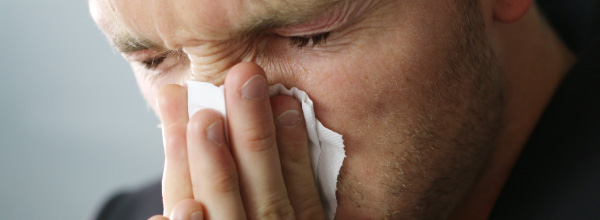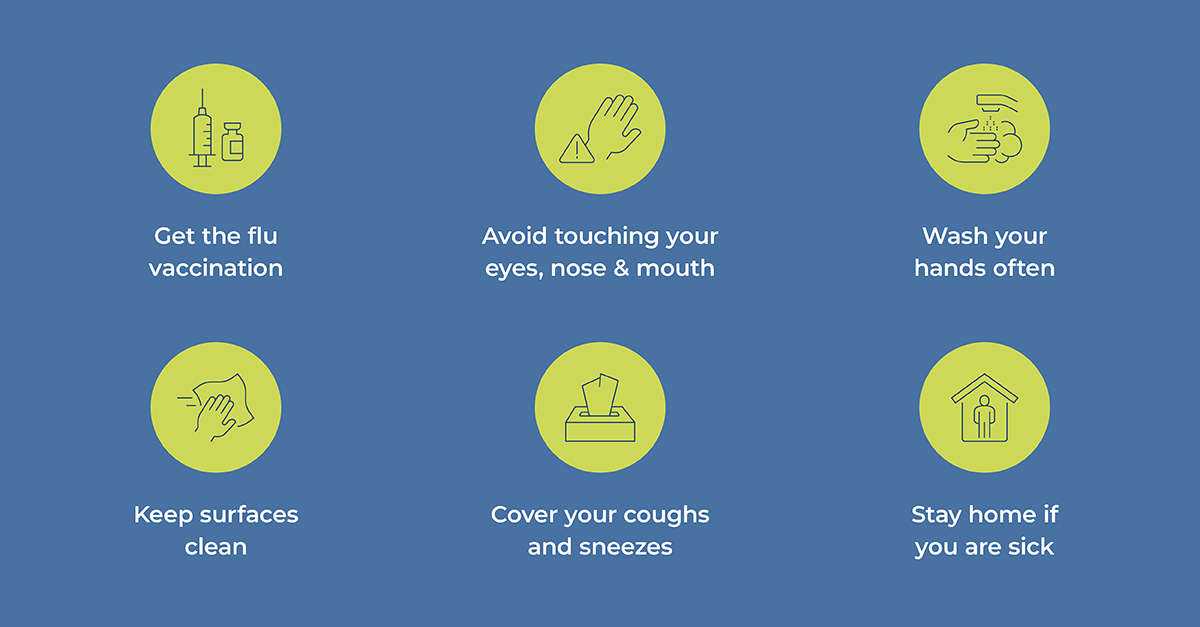
How to avoid going viral
No one likes getting a cold, and certainly not the flu. It is tedious, it makes us less productive, we’re sore, we don’t sleep well, we can’t eat, we are tired all the time, and not to mention the nasty sore throat and runny nose.
So, what can you do about it? Below are some key precautions that you can take to help protect you and those around you from catching and spreading the cold and flu virus. These tips will also help protect you against COVID-19 and should be practised at all times.

1. Get a flu shot
Having a flu vaccination each autumn is the single best way to prevent seasonal influenza.
A seasonal flu vaccination will:
- Help reduce the possibility of getting BOTH the seasonal and Avian Flu
- Boost your immunity which will help you in the event of a flu pandemic
The Australian Government’s Immunise program provides the flu vaccine for free for:
- Anyone 65 years or older
- Pregnant women
- Indigenous people aged 15 years or older
- Kooris and Torres Strait Islanders aged 50 years or older
- Residents of nursing homes and other long-term care facilities
- Anyone aged over 6 months with a condition such as heart disease, chronic respiratory disease, kidney disease, diabetes, impaired immunity and chronic neuromuscular disease
2. Wash your hands often
- Use soap and warm, running water
- Keep fingers pointing down under the water
- Rub hands vigorously for at least 20 seconds
- Dry hands completely using a fresh towel
- Use a hand sanitizer if you do not have access to wash your hands
3. Cover your mouth
- Cover your nose and mouth with a NEW tissue every time you cough or sneeze.
- If you don’t have a tissue, then sneeze or cough into your elbow.
- When an infected person breathes, talks, coughs or sneezes, thousands of tiny particles containing droplet nuclei are expelled into the air. The virus spreads by these droplets.
4. Avoid touching your face
- Germs spread when a person touches something contaminated with germs and then touches his or her eyes, nose or mouth.
- Flu virus needs to enter the body and get to the lungs in order to reproduce. If it stays on your hands, it won’t hurt you, however, if you touch your face, you give the virus a route to enter the body.
5. Practice work-related hygiene
At work (or home) – it’s a good idea to:
- Keep disinfectant wipes and gels handy
- Disinfect hard surfaces such as phones, desks and computer keyboards
- Ensure rubbish bins have removable plastic liners
- If not – consider using a disinfectant spray
6. Stay home if you are sick
Do NOT come to work if you have:
- Chills, shivering and fever (>37.8°)
- Sore throat
- Onset of muscle aches and pains
- Dry cough
- Trouble breathing
- Sneezing
- Stuffy or runny nose
- Tiredness
When you are sick or think you may have been exposed to someone who is sick, ensure you keep your distance from others to protect them from getting sick too.
Protect yourself this cold and flu season – Because COVID isn’t the only bug out there!






Comments